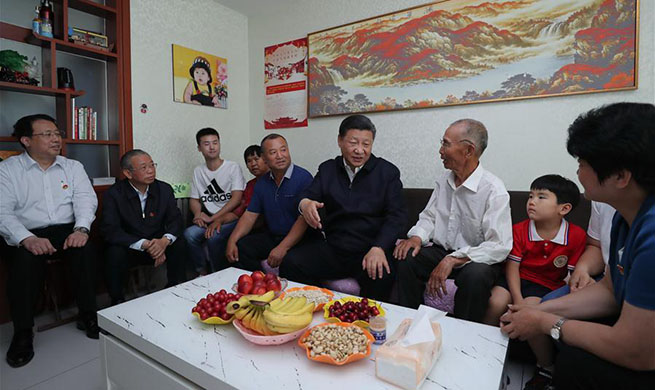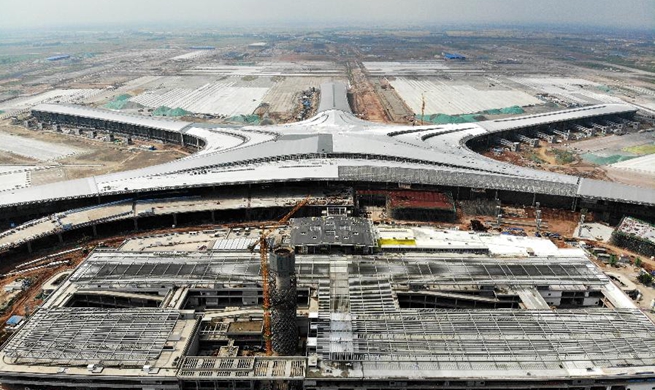NAIROBI, June 14 (Xinhua) -- The East Africa Community (EAC) member states plan to develop harmonized regulations and policies to reduce e-waste, officials said on Thursday.
Francis Wangusi, Chairman of the East African Communication Organization (EACO), told journalists in Nairobi that each of the six member states that make up the trading bloc have different laws on e-waste, which complicates efforts to reduce and recycle e-waste in the region.
"We are therefore going to align our e-waste legislations to ensure we promote environmentally sustainable development in the region," said Wangusi who is also the director-general of the Communications Authority of Kenya.
EAC partner states include Kenya, Uganda, Tanzania, Rwanda, Burundi and South Sudan. Wangusi said that the fast uptake of information and communications technology (ICT) services has come with a fair share of challenges for the region.
"The high demand for ICT services and the desire to bridge the digital divide have witnessed importation of high volumes of second-hand electrical and electronic devices in the last 20 years. The equipment in question include computers, mobile phones and TV sets many of which were either near-end of life, irreparable or obsolete," he said.
"Within a short time, many of these devices have turned into e-waste," said Wangusi.
He noted that according to estimates, Tanzania and Kenya each generate about 45,000 tonnes of e-waste per year, followed by Uganda 25,000 tonnes, Rwanda 10,000 tonnes and Burundi 9,000 tonnes.
Ally Simba, Executive Secretary of EACO, called for a regional harmonized policy to tackle the growing menace of e-waste, which is dangerous to the environment.
Simba said that unified policies will ensure that e-waste is not exported from one EAC partner state to another.
He noted that harmonized polices will lead to improved coordination in reducing the amount of e-waste in the region by having joint e-waste recycling centers.
Wangusi said that well implemented policies could turn e-waste recycling into a robust industry that will create jobs and promote environmental conservation.
ICT BOOM
Simba said the impressive growth of the communications sector is a clear testimony of the high demand for ICT services and the opportunities that ICT presents to in the region.
According to EACO, the region requires massive investment in broadband to support the deployment of a wide range of innovative ICT products and services.
Simba said that governments in the region are already aware of this need and are investing heavily in the deployment of broadband backbone infrastructure.
He added that at the moment, the region has a total of over 21,400 kms of optical fiber installed solely through governments' funding.
He observed that out of the region's total population of 160 million, close to 120 million subscribe to mobile services, translating into an average mobile penetration rate of 75 percent.
"It is worth-noting that mobile money constitutes the fastest growing service within the region with mobile money subscription having reached 72 million, with an average penetration of about 48 percent," he said.
Simba said that in respect to the internet, the region boasts of more than 78 million subscribers with an average penetration rate of 50 percent.















